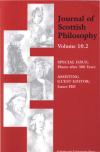
Are Humean Beliefs Pyrrhonian Appearances?: Hume's Critique of Pyrrhonism Revisited
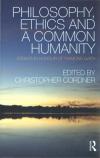
In Search of Goodness
In: C. Cordner (ed.), Philosophy, Ethics and Common Humanity.
The article notes that goodness, while a central ethical concern, receives virtually no attention from philosophical ethics. Its argument that this is no accident takes partly the form of historical examination of the creation of the concept of the ethical (or moral) by the Greeks, which focused on that which is subject to judgement, i.e. on intentional action or will-construed responsibility. Since goodness, unlike 'the good', does not have this structure (it can neither be directly sought nor does the one in whom it is present know that he 'has' it), it is argued that ethics cannot deal with it and so largely ignores it. The articles concludes with the suggestion that to do justice to goodness, indeed to value more generally, we need to re-think what it means to act and the manner in which our action relates to what is around us.

Lev Thun - Alexis de Tocqueville: (korespondence 1835–1856)
(Correspondence between Leo Thun and Alexis de Tocqueville (1835-1856)).
Fořtová and Olšáková co-edited the volume, translated the texts and wrote the introductory study.
The notable Bohemian aristocrat Leo Thun (1811-1888) corresponded with Alexis de Tocqueville (1805-1859), the greatest French political thinker of the 19th century, over the course of twenty years. The topics varied from general issues such as the birth of democracy in the modern world and the necessity of introducing the penitentiary system to Europe, to personal concerns of Leo Thun related to his political career. The text brings together the complete collection of the correspondence in both Czech and French with editorial notes.

Hume's theory of Causation: Is there more than one?
It is traditionally assumed that there is only one theory of causality in Hume's writings. The article argues that we can distinguish between an early and a mature theory. It is further argued that the mature theory, strongly influenced by Newton's physics, accords with the New Hume sceptical realist) interpretation by asserting that real causal relations are not accessible to the human mind.
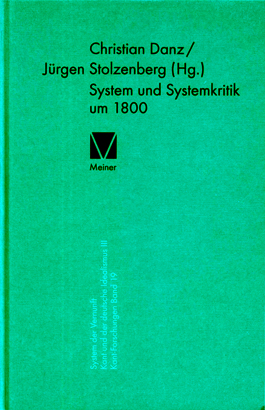
Berner und Frankfurter Ansätze zu Systemkonzeption Hegels
("Hegel's concept of system in the manuscripts of Bern and Frankfurt")
The article is an analysis of Hegel's early thinking about the system of spirit, which he develops already during his time in Bern and Frankfurt in the theological context, and uses later, albeit it in other terms, in the Phenomenology of Spirit.
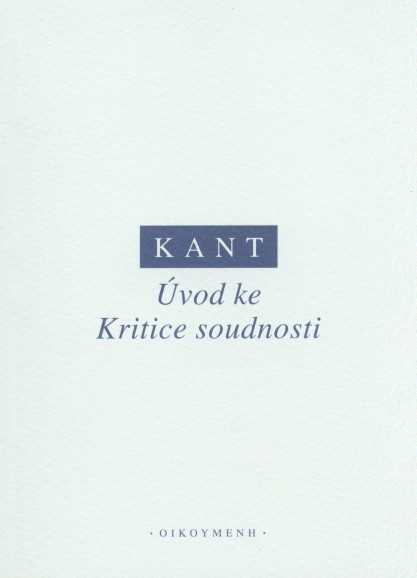
Kant, I., První Úvod ke Kritice soudnosti
(Kant, The First Introduction to the Critique of Judgment)
(Kant, I.: Erste Fassung der Einleitung in die Kritik der Urteilskraft)
Table of Contents
The so-called First Introduction to the Critique of Judgement was not published during Kant's lifetime, for Kant wrote a replacement for the publication of the work when it appeared. It includes a large overview of the entirety of the Critical system, arranged in its final form.

Is Rorty a linguistic idealist?
The paper addresses the recurrent charge that Richard Rorty is a "linguistic idealist". I show what the charge consists of and try to explain that there is a charitable reading of Rorty's works, according to which he is not guilty of linguistic idealism. This reading draws on Putnam's well-known conception of "internal realism" and accounts for the causal independence of the world on our linguistic practices. I also show how we can reconcile this causal independence of things and the sense of our discourse being guided by them with our autonomy with regard to the construction of various "vocabularies" with which we describe, or cope with, reality. In the final part, I address in some detail Rorty's animadversions concerning the idea of the intrinsic nature of reality. I show them to be only partly successful.
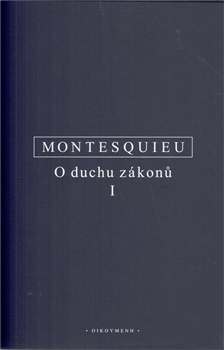
Charles Louis de Montesquieu, O duchu zákonů, I
(Charles Louis de Montesquieu: The Spirit of the Laws, I)
Translation of the post-mortem edition of the The Spirit of the Laws ( L'esprit des lois), from 1757, Montesquieu's influential work in political theory. The translated text is accompanied by commentary.
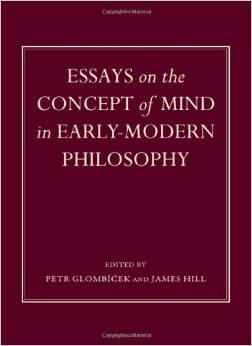
Essays on the Concept of Mind in Early-Modern Philosophy
Glombíček and Hill co-edited the volume and prepared it for the publication. Other members of the Department contributed to it.
An important task for every major philosopher is to offer us an understanding of the nature of mind. The essays in this volume discuss different aspects of the philosophical theories of mind put forward in the century and a half that followed Descartes' Meditations of 1641. These years, often referred to as the 'early-modern period', are probably unparalleled for originality and diversity in conceiving the mind. The volume includes two essays on Descartes' own thinking, as well as examinations of what Spinoza, Malebranche, Locke, Berkeley, Reid, the Cambridge Platonists, and others, have to say about the nature of mind.
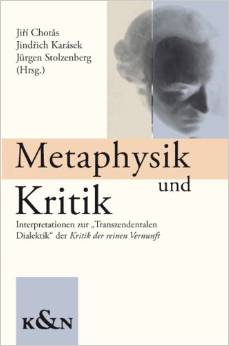
Metaphysik und Kritik
(Metaphysics and Critique)
Chotaš and Karásek co-edited the volume and prepared it for publication. Other members of the department contributed to it.
Kant developed his critique of the rationalistic metaphysics in the Transcendental Dialectics of the Critique of Pure Reason. His conception of Ideas and his theory of the Unconditioned founded a new understanding of metaphysics. Kant scholarship has not paid sufficient attention to this important issue. The volume seeks to remedy this.




